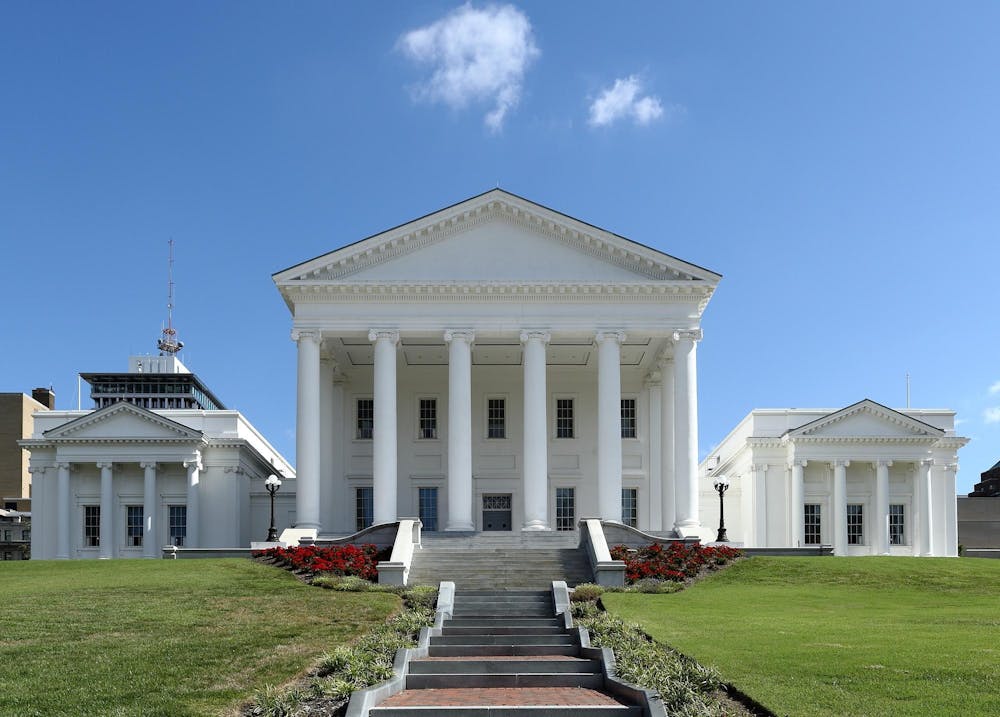A letter from state legislators came to Interim University President Paul Mahoney and Rector Rachel Sheridan Tuesday, sent by Senate Majority Leader Scott Surovell, D-Fairfax and State Sen. L. Louise Lucas, D-Portsmouth. The eight-page letter expressed concern that the agreement that the University signed with the Department of Justice Oct. 22 is unconstitutional and asked Mahoney and Sheridan to “reconsider” the deal.
“These are not merely theoretical concerns,” they wrote. “Federal courts across the country have recently issued injunctions against similar federal attempts to condition funding on policy compliance.”
The University signed an agreement with the Justice Department Oct. 22 which suspended the five remaining investigations into University’s compliance with civil rights law, after two other investigations were closed in early September. In order to suspend the continuation and potential enforcement of these investigations, the University agreed to adhere to the current Justice Department’s interpretation of civil rights law as outlined in a memo distributed by Attorney General Pam Bondi July 29.
In a statement to The Cavalier Daily, University spokesperson Bethanie Glover commented on Surovell and Lucas’ letter, writing that the University agreement with the Justice Department was done in coordination with appointed counsel and that the agreement does not diminish the University’s freedom. McGuire Woods law firm has been leading negotiations with the Justice Department since Ryan’s resignation.
“The agreement preserves U.Va. 's institutional autonomy and academic freedom and permits the University to continue serving the Commonwealth through world-class education, research and patient care,” Glover said.
Surovell and Lucas’ letter comes after Charlottesville Democrats State Sen. Creigh Deeds and Del. Katrina Callsen sent a letter Oct. 23 also criticizing the agreement. The University responded Monday, defending the decision to sign the deal.
The University’s deal with the Justice Department does not directly condition funding on compliance, but does note that noncompliance with the current administration’s interpretation of civil rights law would result in the deal ending prematurely and would reopen the University to enforcement actions by the Department, including federal funding cuts.
The enforcement of compliance using federal funding, according to Surovell and Lucas, does not align with recent court decisions which ruled that funding cuts based on state noncompliance are only constitutional if they meet the five conditions outlined in the 1987 South Dakota v. Dole Supreme Court ruling. These five requirements are that funding serve the general good, be based on unambiguous conditions, relate to federal interest, avoid violating other constitutional bars and not be coercive.
Surovell and Lucas wrote that the agreement between the University and Justice Department is ambiguous and unconstitutionally coercive.
“What specific actions constitute complete 'elimination' of DEI programs?” they wrote. “How does quarterly presidential certification work when the very standards for compliance appear to be moving targets subject to ongoing DOJ interpretation?”
The letter claimed federal law allows universities to consider an applicant’s discussion of race, but Bondi's memo discourages this consideration, which Surovell and Lucas claimed is an overstep of federal power. The letter also claimed that the Justice Department’s interpretation goes “far beyond” existing civil rights law.
“U.Va. is thus agreeing to do more than federal law requires— indeed, more than federal law allows under proper statutory interpretation,” they wrote. “This is a bizarre capitulation that raises serious questions about the motives of all involved.”
At a Faculty Senate meeting Oct. 24, Brie Gertler, interim executive vice president and provost, said that internal guidelines the University adopted this spring are “broadly the same” as guidelines in the July 29 memo. According to Gertler, the agreement also allows for relevant judicial decisions to take precedence over strict adherence to the memo.
The letter claims that the Justice Department does not have authority to condition federal funding on compliance with “executive guidance,” which it says must be granted by Congress. It also states the University signed the agreement with the Justice Department in a way that breaks the governance relationship between the University and the Commonwealth. According to Virginia state law, the General Assembly of the Commonwealth governs the University and Board of Visitors.
Surovell and Lucas called on the University to rethink the agreement with the Justice Department and even called Mahoney and Sheridan to consider joining with other public universities also facing pressure from the federal government to elicit a coordinated response. Further, Surovell and Lucas asked that Mahoney and Sheridan attend a hearing of the Senate Finance and Appropriations Committee Subcommittee on Education for “further questioning.”
“We urge you to reconsider this agreement and to defend the University's autonomy, Virginia's sovereignty, and the constitutional limits on federal power,” they wrote. “Thomas Jefferson founded this University to be a beacon of enlightenment and independence. It should not become a cautionary tale of capitulation to federal overreach.”
Surovell and Lucas requested a response to their letter from the University by Nov. 7 and made a series of requests regarding next steps for the University. The pair also wrote that they "welcome the opportunity” to discuss their stated concerns with the University and full Board.
Glover said that the University has received the letter and is preparing a response.







